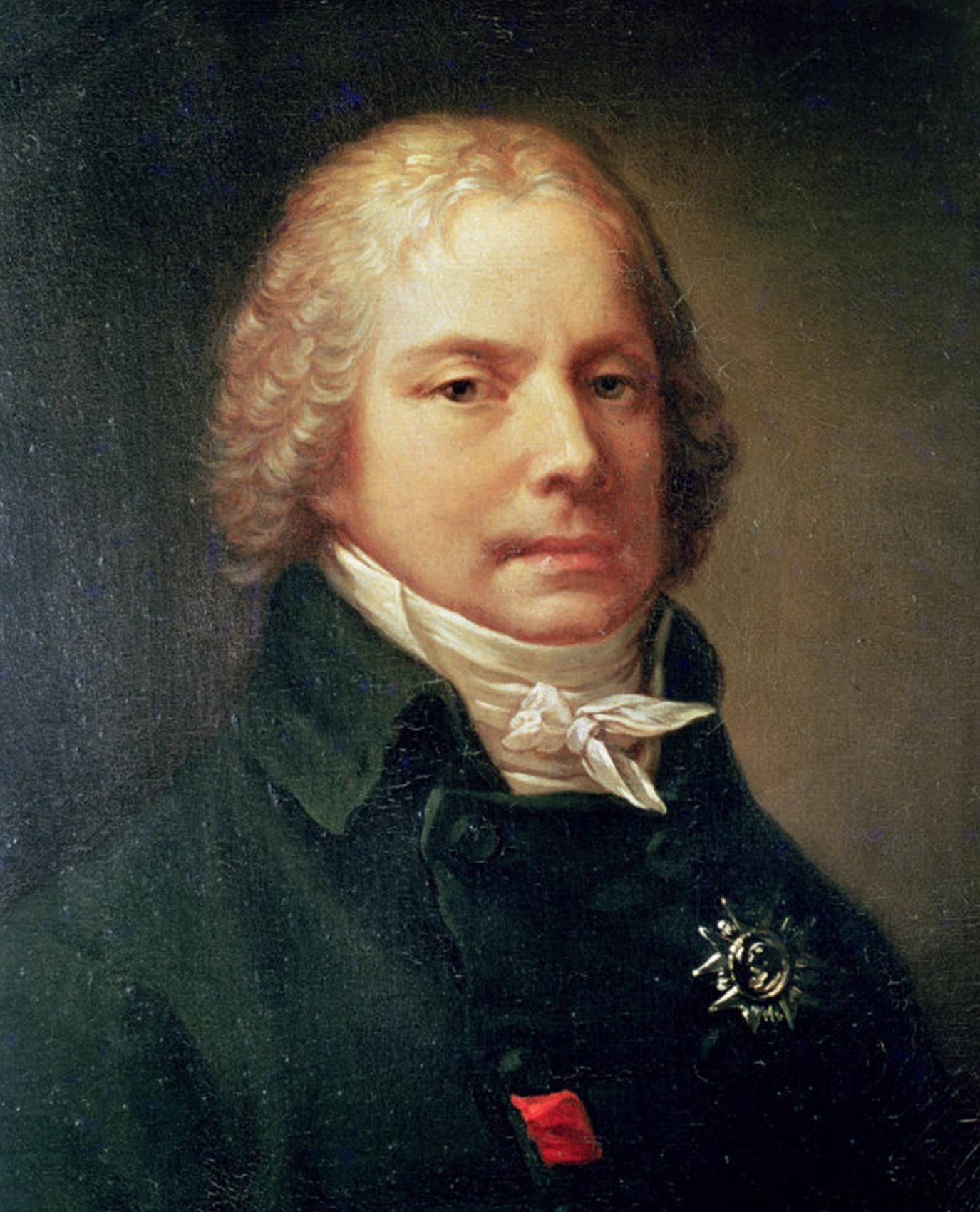Charles-Maurice de Talleyrand-Périgord Berühmte Zitate
Georg Büchmann: Geflügelte Worte. 19. Aufl. S. 488 susnig.nu http://susning.nu/buchmann/0522.html
Zugeschrieben
„Verrat, Sire, ist nur eine Frage des Datums.“
verbreitete aphoristische Zusammenfassung folgender Passage aus dem Brief Talleyrands an König Ludwig XVIII., Wien 4. Oktober 1814: so meinte der Kaiser [Alexander] Sachsen, wenn er sagte: "Die Verräther an der Sache Europas." Worauf ich erwidern konnte: "Sire, das ist eine Frage des Datums", und nach einer langen Pause hinzufügte: "und eine Wirkung der Verlegenheiten, in die man durch die Umstände geraten kann." - Talleyrand's Briefwechsel mit König Ludwig XVIII. während des Wiener Congresses. F.A. Brockhaus 1881, S. 20 https://books.google.de/books?hl=de&id=glcuAQAAIAAJ&q=verräther books.google https://books.google.de/books?id=glcuAQAAIAAJ&q=datums (Original fr.: c'est ainsi que l'empereur [Alexandre] voulait désigner la Saxe en disant : ceux qui ont trahi la cause de l'Europe. A quoi j'ai été dans le cas de lui répondre : Sire, c'est là une question de date; et après une legère pause j'ai pu ajouter: et l'effet des embarras dans lesquels on a pu être jeté par les circonstances. - Correspondance inédite du prince de Talleyrand et du roi Louis XVIII pendant le Congrès de Vienne. Publié par M. G. Pallain, E. Plon Paris 1881, p.21-22 Gallica http://gallica.bnf.fr/ark:/12148/bpt6k6133659w/f61.image, archive.org https://archive.org/stream/correspondancei00louigoog#page/n61/mode/2up Source: Talleyrand rappelait ainsi discrétement à Alexandre I<sup>er</sup> que lui aussi avait trahi la cause des Rois en 1807. (Traité de Tilsitt.)
Verrat
„Für Geld würde er seine Seele verkaufen, denn er würde seinen Mist eintauschen gegen Gold.“
Honoré Gabriel de Mirabeau (Orieux: Talleyrand Die unverstandene Sphinx, S. 67)
Zitate über Talleyrand
„Wie schade, Messieur, dass ein so großer Mann so schlecht erzogen ist.“
über Napoleon, nachdem dieser ihn in einem Anfall von Zorn über eine seiner Intrigen eine halbe Stunde lang vor dem versammelten Kabinettsrat mit schweren Beleidigungen überschüttet und den Raum verlassen hatte (Orieux: Talleyrand. Die unverstandene Sphinx, S. 446)
Zugeschrieben
„Beleidigungen sind das Recht derjenigen, die Unrecht haben.“
Jean Orieux: Talleyrand. Die unverstandene Sphinx, S. 446
Zugeschrieben
Charles-Maurice de Talleyrand-Périgord Zitate und Sprüche
„Er hat alle Laster des alten Regimes und alle des neuen.“
Madame de Staël (Orieux: Talleyrand. Die unverstandene Sphinx, S. 196)
Zitate über Talleyrand
„Das ist das einzige Laster [französisch vice], das ihm noch fehlte.“
Joseph Fouché im Spott über Talleyrands Ernennung zum Vice-Grand-Electeur im Jahr 1808. (Orieux: Talleyrand Die unverstandene Sphinx, S. 400)
Zitate über Talleyrand
-
Les femmes - "Soyez à leurs pieds, à leurs genoux... mais jamais dans leur main."
Zugeschrieben
„Nicht nachgeben bedeutet manchmal getötet werden, aber nachgeben bedeutet geschwächt werden.“
Orieux: Talleyrand. Die unverstandene Sphinx, S. 552
Zugeschrieben
- Jean Orieux. Talleyrand. Die unverstandene Sphinx. Aus dem Französischen von Gerhard Heller. Societäts-Verlag Frankfurt/Main 1972. S. 703
Zugeschrieben
Jean Orieux: Talleyrand. Die unverstandene Sphinx, Aus dem Französischen von Gerhard Heller. Societäts-Verlag Frankfurt/Main 1972. S. 37
Zugeschrieben
(über seine Befürwortung des Schulbesuchs für Mädchen) - Jean Orieux: Talleyrand. Die unverstandene Sphinx, Aus dem Französischen von Gerhard Heller. Societäts-Verlag Frankfurt/Main 1972. S. 379
Zugeschrieben
„Das ist kein Ereignis, sondern bloß eine Neuigkeit.“
auf die Meldung vom Tod Napoleons. Wilms: Talleyrand. Virtuose der Macht, S. 284.
Zugeschrieben
Charles-Maurice de Talleyrand-Périgord: Zitate auf Englisch
“They have learned nothing, and forgotten nothing.”
and variations
Recognized since the 19th century as a borrowing, possibly used by Talleyrand, from a 1796 letter to Mallet du Pan by French naval officer Charles Louis Etienne, Chevalier de Panat: Personne n'est corrigé; personne n'a su ni rien oublier ni rien apprendre. "Nobody has been corrected; no one has known to forget, nor yet to learn anything."
Sources: Craufurd Tate Ramage Ll.D.Beautiful thoughts from French and Italian authors, E. Howell (1866)
Misattributed
Qui n'a pas vécu dans les années voisines de 1789 ne sait pas ce que c'est le plaisir de vivre.
Reported in Memoirs pour Servir a l'histoire de nous Temps by François Guizot, Volume I, p. 6.
“It is not an event, it is a piece of news.”
Ce n'est pas un événement, c'est une nouvelle.
On hearing of Napoleon's death; reported in Hoyt's New Cyclopedia Of Practical Quotations (1922).
Reported in, C.N. Douglas, comp. Forty Thousand Quotations: Prose and Poetical. (1917).
“Financiers flourish only when nations decline.”
Reported in, Bernard, J. F., Talleyrand: A Biography. (1973), p. 592
Reported in, Bernard, J. F., Talleyrand: A Biography. (1973), p. 592
“It is the beginning of the end.”
C'est le commencement de la fin.
Ascribed to Talleyrand in The Hundred Days (1815); reported in Hoyt's New Cyclopedia Of Practical Quotations (1922), p. 66. Also attributed to General Augereau.
“You do not play then at whist, sir! Alas, what a sad old age you are preparing for yourself!”
Vous ne jouez donc pas le whist, monsieur? Hélas! quelle triste vieilesse vous vous préparez!
Reported in Hoyt's New Cyclopedia Of Practical Quotations (1922), p. 90.
“Black as the devil, hot as hell, pure as an angel, sweet as love.”
Noir comme le diable, chaud comme l'enfer, pur comme un ange, doux comme l'amour.
frequently misattributed to Talleyrand, no primary source exists, its not his style of speech, and he famously drank tea not coffee.
Misattributed
“It is worse than a crime, it is a mistake.”
C'est pire qu'un crime, c'est une faute.
Reaction to the 1804 drumhead trial and execution of Louis Antoine de Bourbon, Duke of Enghien, on orders of Napoleon. Actually said by either Antoine Boulay de la Meurthe, legislative deputy from Meurthe (according to the Oxford Dictionary of Quotations) or Joseph Fouché, Napoleon's chief of police (according to John Bartlett, Familiar Quotations, 10th ed. (1919), http://www.bartleby.com/100/758.1.html).
Misattributed
“There is no sentiment less aristocratic than that of nonbelief.”
Reported in, Bernard, J. F., Talleyrand: A Biography. (1973), p. 605
